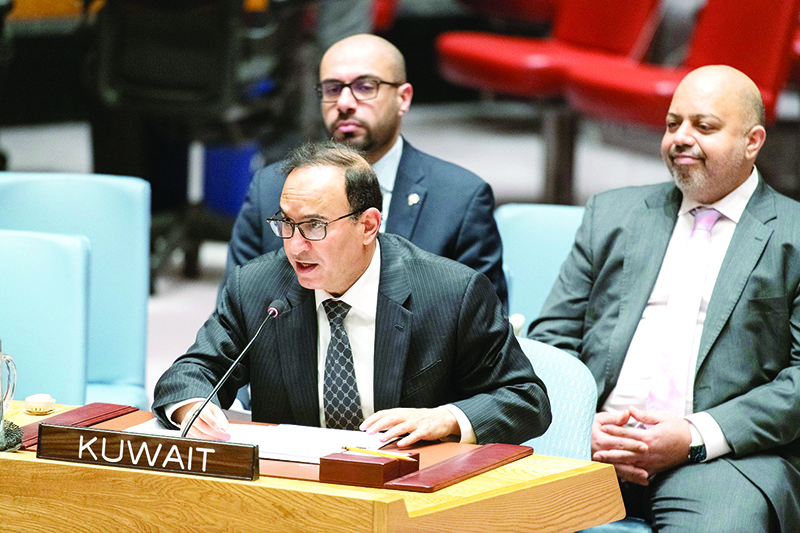
NEW YORK: Kuwait affirmed that the United Nations charter constituted "the first line of defense for small countries," noting that the 1991 liberation of Kuwait was an example how efforts could be coordinated for such an achievement. The Kuwaiti stance was demonstrated at a United Nations Security Council session-addressed by the State of Kuwait Permanent Representative to the UN, Ambassador Mansour Al-Otaibi. On basis of UNSC resolutions designed to support law sovereignty, justice and equality, the liberation of Kuwait was accomplished, thus it was a successful and historic example regarding the UNSC capability to end the aggression, Ambassador Otaibi stated.
On current conditions in the Gulf, he indicated that all stakeholders were deeply concerned about security and stability of the region "and we share the United Nations Secretary General in his recurring calls for de-escalation in the area and urge for maximum restraint and wisdom for sake of political tackling that may spare the region more escalation and hazards."
"Seventy-five years after formation of the UN, its charter remains a constitution for multi-lateral international action and a clear international law that regulates relations among states and places action measures to deal with threats against international peace and security in a collective and effective fashion," Ambassador Otaibi said. "The UN charter concerning us during our membership in the Security Council was the compass according to which we dealt with issues enlisted in its agenda and we were convinced that the Security Council could be more effective in tackling challenges raging in our world today."
Otaibi called for activating "the tools enshrined in the charter" to settle strife peacefully, through negotiation, mediation and arbitration. Preventive measures should be of great concern for the Security Council for sake of averting break-out of strife by dealing with crises in the early stages, he said, also expressing confidence that regional organizations, and others, could also contribute to safeguarding international, regional peace and security, according to the UN Chapter eight. He called for greater cooperation between the UNSC and regional organizations.
"We have through our UNSC membership presented a presidential statement for cooperation between the United Nations and the Arab League and we hope to follow up on implementing content of the statement in the future," he said. Otaibi noted that divergent stances among the council member states have often obstructed tackling crises, underscoring necessity of unity among them so that the council could be able to shoulder responsibilities as stipulated in the charter. - KUNA

